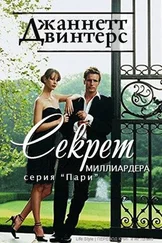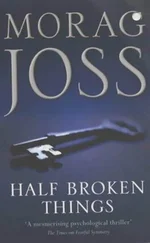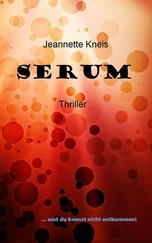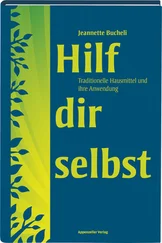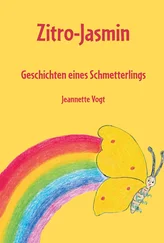“It’s not up to us, and it’s not up to you, either,” I told him. “We’re gone.”
Since ranching was going to be in our past, I wanted to get rid of most everything that had to do with it. We sold all the horses to Gaiters except Patches, who was pushing thirty. I gave her to the Havasupai. Rosemary might never see the Garden of Eden again, but at least she’d know that a horse she loved was there.
I did keep the English riding pants and the pair of field boots I’d been wearing the day I’d fallen off Red Devil and met Jim, but that was about it. Everything we owned fit into the back of the hearse, and on a beautiful spring day when the lilac was blooming and warblers were singing in the hoptrees, we packed it all up and headed down the drive. Rosemary was still at boarding school. She’d never returned to the ranch. Little Jim, who was sitting between me and Jim, twisted around for one last glance.
“No looking back,” I said. “You can’t. You just can’t.”
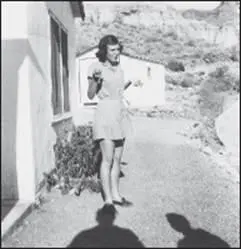
Rosemary, age sixteen, Horse Mesa
JIM DECIDED THAT WEshould start our new life in Phoenix by splurging.
“Name something you’ve always wanted,” he said.
“New choppers,” I said immediately. My teeth had been giving me trouble for years, but folks on the Colorado Plateau weren’t big on dentists. If a tooth wouldn’t stop aching, you found yourself a pair of pliers and pulled the bugger. I also had a gap between my two front teeth where they had rotted in from the sides. I tried to keep the gap plugged with a piece of white candle wax, but when the wax fell out from time to time, I had to admit it looked a little scary. Jim’s teeth were every bit as bad.
“You get yourself a pair, too,” I said.
Jim grinned. “Two new sets of choppers. That should get us going just fine in this here town.”
We found a nice young dentist who shot us full of Novocain, pulled out our worn-down brown teeth, and fitted sets of new dentures to our gums. The first time he put them in place and held up the mirror, I was thrilled by those two flawless rows of big gleaming white porcelain, as shiny and square as kitchen tiles. Overnight I’d gotten myself the smile of a movie star, while Jim looked about thirty years younger. The two of us walked around the city beaming radiantly at our new neighbors.
We also bought a house on North Third Street. It was a big old place with high windows, sturdy wooden doors, and adobe walls about two feet thick. Finally, we junked that beater of a hearse and bought a maroon Kaiser, a new kind of sedan made in California, with wide bumpers and running boards. I was proud of that house and proud of that car, too, but nothing made me prouder than my new set of choppers. They beat the pants off real teeth, and from time to time when I was in a restaurant or someplace telling someone about them, I couldn’t help it, I had to pull them out and show them off to prove that they were the genuine article.
“Look!” I’d say as I held them up. “They’re not teeth. They’re real dentures!”
AT FIRST I THOUGHTPhoenix was terrific. Our house was near the center of town, and we could walk to stores and movie theaters. I made a point of going to every single restaurant on Van Buren Street. I especially loved cafeterias, because you could actually see the food before you ordered it instead of flying blind with a menu. After all those years of sitting on orange crates and drinking from coffee cans, I went out and bought a carved mahogany dining set and Bavarian china. For the first time in our lives, we got a telephone, which meant people who wanted to get in touch with me didn’t have to leave a message with the sheriff.
Little Jim, however, hated Phoenix from the get-go. “You feel penned in,” he said. “You feel puny.”
And when Rosemary’s boarding school let out and she joined us in the city, she hated it, too. They hated the black asphalt and the gray concrete. They thought air-conditioning was weird and noisy, and the telephone just allowed busybodies to pester you day and night. Phoenix was square and straight, boxy and boxed in, and above all, fake.
“You can’t even see the ground,” Rosemary complained. “It’s all covered up with pavement and sidewalks.”
“But think of the advantages,” I said. “We eat at cafeterias. We have indoor plumbing.”
“Who cares?” Rosemary said. “Back at the ranch, you could hunker down and take a pee whenever you had the urge.” She added that living in Phoenix was even making her question her faith. “I’ve been praying daily to go back to the ranch,” she said. “Either God doesn’t exist or he doesn’t hear me.”
“Of course he exists and of course he hears you,” I said. “He has the right to say no, you know.”
But I did begin to worry about the effect Phoenix was having on that girl. She had no use for indoor plumbing, questioned the existence of God, and even acted all embarrassed when, the next day at a luncheonette, I took out my dentures to show them off to the waitress.
* * *
I didn’t care to admit it to the kids, but after a few months, I started feeling a little penned in myself. The traffic drove me crazy. Back in Yavapai County, you drove wherever you wanted at whatever speed you wanted, and left the road whenever you were so inclined. Here there were stoplights, cops with whistles, yellow lines, white lines, and all manner of signs ordering you to do this and forbidding you from doing that. Cars were supposed to mean freedom, but all these people stuck in traffic on one-way streets-where you weren’t even allowed to make a U-turn to get the hell out of the jam-might as well have been sitting in cages. I found myself constantly arguing with other drivers, sticking my head out the window of the Kaiser, which was always overheating, and hollering at those dimwits that they should go back east, where they belonged.
Nothing had ever made me feel as free as flying, and I was only a few hours away from getting my pilot’s license, so I decided to take up lessons again. The airport had a flying school, but when I showed up one day, the clerk passed me an entire sheaf of forms and started yammering about eye exams, physicals, takeoff slots, elevation restrictions, and nofly zones. I realized that these city folks had boxed off and chopped up the sky the same way they had the ground.
One thing about Phoenix, though: There were a lot more jobs available than in Yavapai County. Jim was hired as the manager of a warehouse stocking airplane parts, and I landed a teaching position in a high school in South Phoenix.
There were also investment opportunities in the city. After paying for our house on Third Street, we still had money left over, and we used it to buy a few other small houses that we rented out. Distressed properties were always coming onto the market at bargain prices. Jim and I attended courthouse auctions and bid on foreclosures, and I started carrying a ten-thousand-dollar cashier’s check in my purse, just in case I happened across anyone needing to sell quickly at a discounted price. For the first time in our lives, we were living on the backs of others, but that was how you got ahead in the city. When Jim said it made him feel like a vulture, I told him that scavengers got a bum rap. “Vultures don’t kill animals, they live off the dead,” I said. “And that’s what we’re doing. We’re not bringing misfortune on these people, we’re just taking advantage of it.”
I worried constantly that someone might snatch my purse and make off with the check, so I kept the bag clutched to my chest when I walked through town. That was only one of a number of things I found myself worrying about in Phoenix. We had bought ourselves a radio that we could listen to all day long now that we were living in a house wired for electricity. At first I thought that was just grand, but it meant that for the first time I was also listening to the news every day, and about every day, it seemed, there was a report about some crime or another in town. People were always getting robbed or having their cars stolen or their houses burgled if they weren’t getting raped, shot, or stabbed. A Phoenix woman named Winnie Ruth Judd-known as the “Blonde Butcher” and the “Trunk Murderess” because she’d killed two people and put their bodies in her luggage-kept escaping from the insane asylum she’d been sent to, and the news was always filled with accounts of possible Trunk Murderess sightings, along with warnings to the citizenry to lock all doors and windows.
Читать дальше


